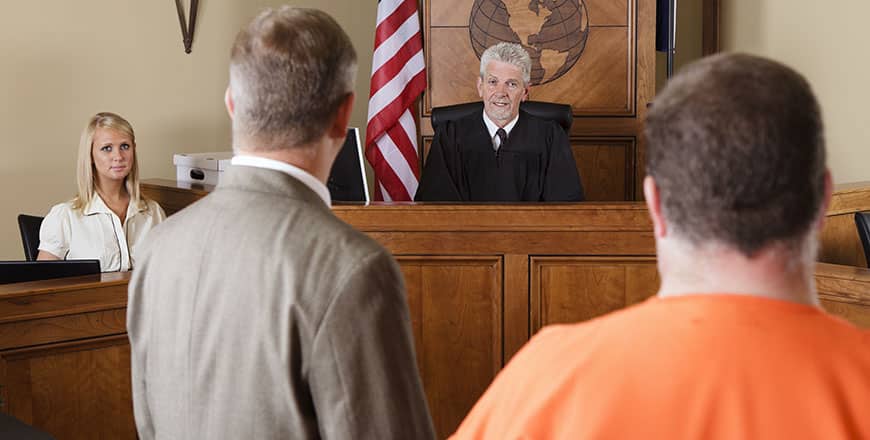There are many ways in which you can plan an estate and make end-of-life arrangements easier. A trust is one of them. Here is everything you need to know about trusts and how to incorporate them in estate planning with the advice of a wills and trust attorney.
What Is A Trust?
A trust is essentially a legal document that involves three parties, namely:
- The trust/grantor is the person who owns the assets inside the trust and is the maker of the document
- The trustee is the person who makes decisions on behalf of the beneficiaries. They are essentially the main decision-makers of the trust.
- The beneficiaries are the people who get the assets from the trust. They can be familial members of the grantor or anyone who the grantor wants to give the trust to.
A trust is a great way of ensuring that the assets are used in the right way by a beneficiary. They are under the control of the grantor until they pass and afterward, following a set of instructions left by the grantor, the trustee will ensure that no one can take advantage of the assets and that they go to the beneficiaries at the right time.
What You Can Add In A Trust?
You can add anything and everything in a trust including:
- Your family house or the house you live in
- Any properties you might have
- Stock or bond certificates
- Retirement accounts
- Cash accounts
- Interests from businesses, etc.
Trusts And Estate Planning
A trust is used a lot when people are planning their estate. The purpose of planning an estate in your lifetime is to prevent the process of probate, which is essentially the succession of your assets in court based on the current laws.
If you have a trust and have already assigned beneficiaries, then you can easily skip the probate process, which is extremely lengthy, and divide the assets among the beneficiaries that you’ve chosen. It makes the process simple, quick, and secure for your family. You can be in charge of the trust until your passing and they’re a great tool for keeping your wealth safe, especially if your beneficiaries are vulnerable minors and can’t make decisions for themselves.
When planning an estate, you can choose a trust as a foolproof way to steer your assets however you want. You can also manage taxes on assets that are in a trust. A trust is also a way to minimize federal taxes on assets and is a way to make the lives of the remaining family members easy. There’s no rocket science in trust and you don’t need to be a financial guru to understand the gist of a trust. It’s pretty much self-explanatory.
Why You Should Have A Trust?
While a trust is great, it’s not a one-size-fits-all kind of a deal. It is specific to the different needs of people. Trusts in estate planning are perfect for people who:
- Have properties or houses out of state and want to add them to their assets for beneficiaries.
- Want to prevent the assets from being displayed in public.
- Have sizable assets, exceeding the value of $200-250k in value.
- Want to set up conditions for beneficiaries, like being able to access the trust after graduating college, getting a job, saving x amount of dollars, or getting married.
- Want to skip the probate process and make things a smooth ride for their family.
A trust is not a direct option for people who don’t have assets in their name or do not fit the trust-making criteria. It is sometimes better to go for other options like making a will or updating the estate through different means because for some people, trusts can be a huge debacle and there are easier ways to manage your finances, especially if you’re thinking about end-of-life arrangements.
Types Of Trusts
Here are the different types of trusts that you can opt for, based on what circumstance suits you best. You have to discuss your preferences and situation with an estate planning attorney to choose the right type.
Revocable Trusts
Revocable trusts are trusts that are made during your lifetime and until you’re alive, the decision-making is in your hands. You can or cannot assign a trustee immediately, and that’s up to you. If you assign a trustee, then the trust is known as a living trust, and if you don’t, then it’s called a revocable living trust.
In the latter, there’s no guarantee that your assets are protected from creditors like banks, but they’re still hard to get a hold of, so it can be considered if you’re looking for a safe option that gives you liberty of making decisions.
Irrevocable Trusts
These are the trusts that cannot be changed once they’re made. You will have to officially give up ownership of any and all assets presented in the trust. Irrevocable trusts is the route people choose when they want to evade federal estate taxes since the assets are not in their name anymore, they’re not bound to pay taxes.
It’s also a good option for people whose jobs are vulnerable and can be threatened by law, so doctors, lawyers, and even realtors go for this kind of trust in estate planning.
Testamentary Trusts
This trust is also known as a will trust. It is a trust that’s essentially made within a will and it goes into effect after you pass. The downside to this trust is the fact that the will goes through probate, so all the effort you’re making to prevent going through probate will not be fruitful, because it’s not essentially a living trust.
Joint Trusts
This trust is made by two people, generally spouses or siblings. The two owners of the trust have all the control over the assets and if one of them passes, the existing owner ultimately becomes the trustee. This is a great option to go for if you don’t want to assign a 3rd person as a trustee.
Charitable Trusts
Charitable trusts are made with philanthropic purposes in mind. The assets will be given to the beneficiaries and a charity of the grantor’s preference, after they have passed.
Usually, the beneficiaries can benefit from the trust while you’re still alive, but after your passing, the remaining assets in the trust are divided among however many charities/charitable causes you’ve included in the legal document. These trusts are great if your assets mostly consist of appreciated stocks.
A-B Trusts
A-B trusts might sound similar to joint trusts, in the sense that they’re made by spouses, but the main goal of this trust is to ensure that the assets are exempt from estate taxes.
It’s a combination of two trusts, namely the A trust (for the person above the ground or alive) and B trust (for the person below the ground or dead). If person B dies, then all of the assets will go under the ownership of person A, and if both owners are pronounced dead, then the assets are automatically given to beneficiaries.
Conclusion
Estate planning is anything but morbid. It’s a smart way of planning everything and ensuring that your family members (and the people you want to take care of) are financially safe and secure after your passing. Luckily, a trust makes everything a lot easier. Get more details from an estate planning lawyer.














